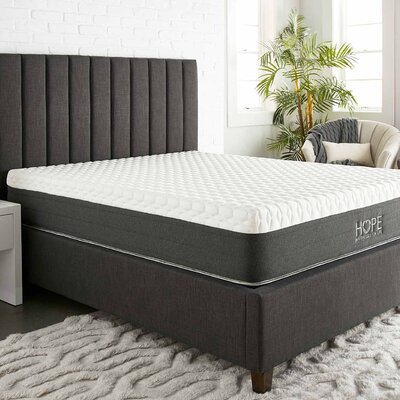Disclosure: This post may contain affiliate links, meaning we get a commission if you decide to make a purchase through our links, at no cost to you. Please read our disclosure for more info.
Your bed is somewhere to rest and recharge, but if you’re not careful – it could cause you bad health. If you don’t wash your sheets regularly or neglect to change your bedding when you’re supposed to, you could be at risk of different illnesses or skin conditions that can cause misery without you realizing.
Find out more about when you should be replacing your bedding to ensure better health.
In This Post:
Bed Sheets
Bed sheets can contain a lot of bacteria, even if you think they look clean. The sweat, oils and dead skin cells we leave in our beds each night can make them a breeding ground for bacteria that could cause illnesses and infections if left untouched. You should wash your sheets EVERY WEEK to keep your bed clean and to help ease conditions such as asthma that can be aggravated by the dust mites that feed off dead skin.
Pillowcases
Suffering from bad skin or greasy hair? Your pillowcase could be to blame. The oils from your face and hair that we transfer to our pillowcases can cause blemishes and irritated skin – especially if you use a lot of products before bed. It’s recommended that you change your pillowcases EVERYTWO TO THREE DAYS, flipping them over in between so that you avoid causing problems for your skin and hair.
Comforters and Pillows
Your comforter and pillows provide comfort and keep you warm at night, which also means you sweat into them while you’re sleeping. As they’re mainly protected by sheets, you only have to wash these EVERY SIX MONTHS to keep them in good condition. You’ll want to replace your pillows every two years, while a good comforter can last around ten years if washed regularly. If your pillows and comforter are bunching or showing obvious signs of wear, you’ll know when it’s time to replace them.
Mattress
Your mattress could be causing you more health issues than you realize. A poor mattress leads to poor sleep, which causes stress and irritation, but can also trigger back conditions or your allergies to act up. A mattress should be replaced EVERY 10 YEARS to ensure that you give yourself the right support, but you might want to replace it sooner if your sleep is being affected or you’re suffering from back pain.
Choosing the right mattress is important, and Mattress-Guides could help you find the best one for your needs. Consider how you tend to sleep and whether you need firm or medium support and if the mattress has built-in allergy prevention. Give your mattress the best chance of longevity by buying a mattress topper and protector to keep it in good condition.
Can’t afford a new mattress? Buy a mattress now, pay later!
If you’re really struggling to sleep at night, you should find ways to make your bedroom more comfortable and help you get the rest you need. Sleep is important for our health, and if you’re struggling to get what you need to make it through the day – you need to evaluate and find solutions before it becomes a more serious issue.






